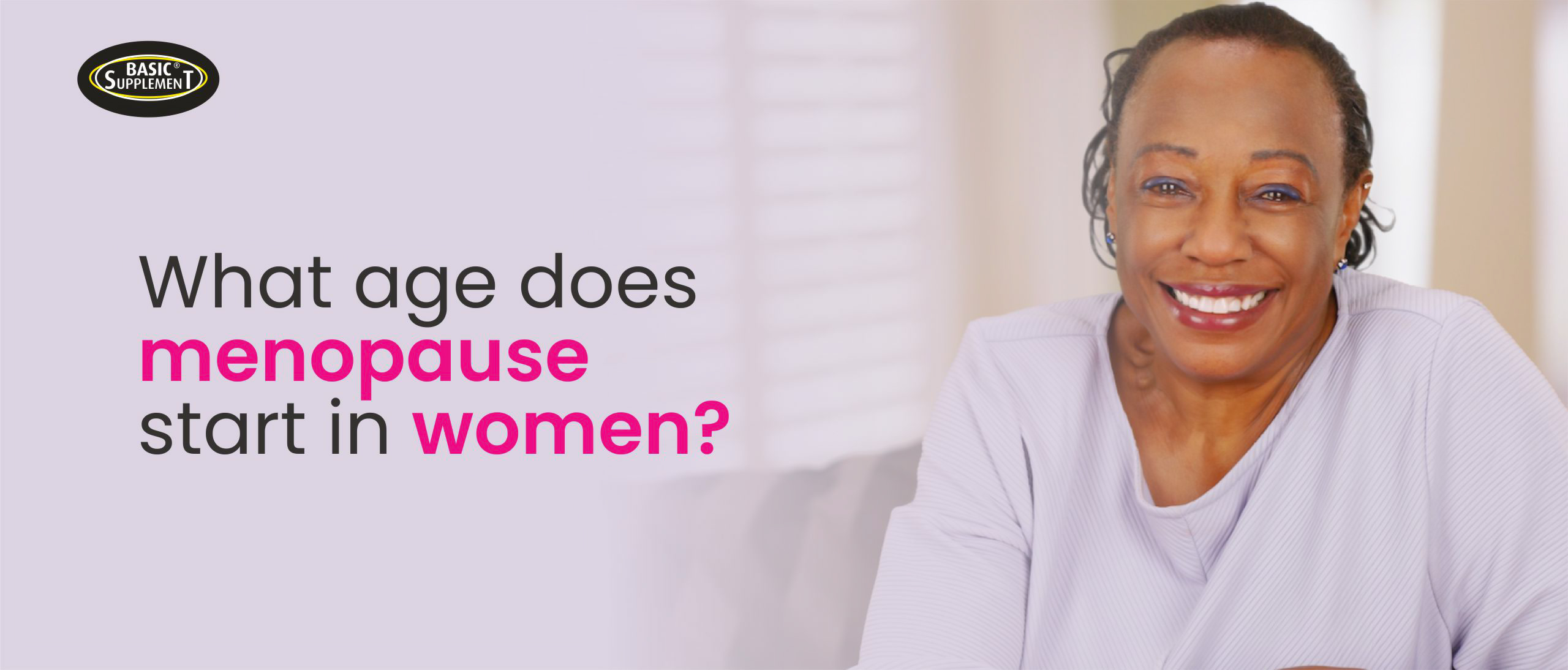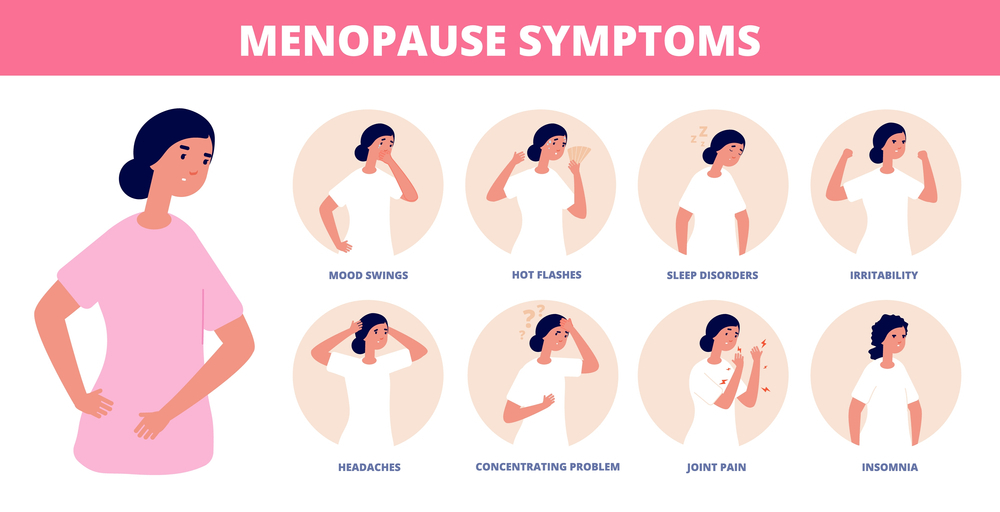
Menopause is a natural biological process marking the end of a woman’s reproductive years. It’s defined as the point when a woman has gone 12 consecutive months without a menstrual period, signaling the end of menstrual cycles and fertility. While the average age of menopause is 51 years, about 5% of women experience early menopause (<45years) and about 1% of women experience premature menopause (<40years), widely based on factors such as genetics, lifestyle, and health.
Menopause Symptoms- How Estrogen Decline Affects the Body.
Estrogen is a key hormone in the female body, influencing a wide range of bodily functions from reproductive health to bone density, cardiovascular health, and even skin elasticity. During menopause, a woman’s estrogen levels drop significantly as the ovaries slow down and eventually stop producing it. This hormonal shift is responsible for many of the symptoms and physical changes associated with menopause.
The reduction in estrogen during menopause can lead to a wide range of physical and emotional symptoms, these are called menopausal symptoms.
Menopause symptoms

- Hot Flashes and Night Sweats: Estrogen plays a role in regulating the hypothalamus, the part of the brain that controls body temperature. A drop in estrogen levels can disrupt this process, leading to sudden waves of heat and sweating.
- Vaginal and Urinary Health: Reduced estrogen can lead to vaginal dryness, itching, and irritation, as well as increased urinary frequency and urgency. The lower estrogen levels affect the thickness and elasticity of vaginal tissues, making them more fragile and prone to discomfort.
- Increased Risk of Osteoporosis: Without estrogen’s protective effect on bones, postmenopausal women face a higher risk of osteoporosis and fractures due to accelerated bone loss.
- Increased Cardiovascular Risk: Estrogen helps maintain healthy blood vessels, so its reduction during menopause can lead to an increased risk of heart disease, particularly for women who have other cardiovascular risk factors.
- Skin Changes: With reduced estrogen, skin becomes thinner and loses elasticity and moisture due to a decline in collagen and moisture, increasing the likelihood of fine lines, wrinkles, and dryness.
Managing Menopause Symptoms
- Diet and Lifestyle Changes: Eating a balanced diet rich in calcium, magnesium, and vitamin D supports bone health. Regular exercise, particularly weight-bearing and strength exercises, can also help prevent bone loss and support cardiovascular health.
- Herbal and Natural Supplements: Certain herbs like black cohosh, soy isoflavones, and Dong Quai contain phytoestrogens—plant-based compounds that mimic estrogen in the body. These may offer relief for some menopause symptoms.
- Skin Care and Hydration: Using moisturizers containing hyaluronic acid and collagen-boosting products can help improve skin elasticity and hydration.
Feel more like yourself again with Immunboost senior women 50+. Specially formulated supplement addresses the specific needs of menopausal women, helping you regain energy, balance hormones, and enjoy life to the fullest. The special blend also contains ingredients that support healthy Hair, Skin & Nails making her feel good and look good.




